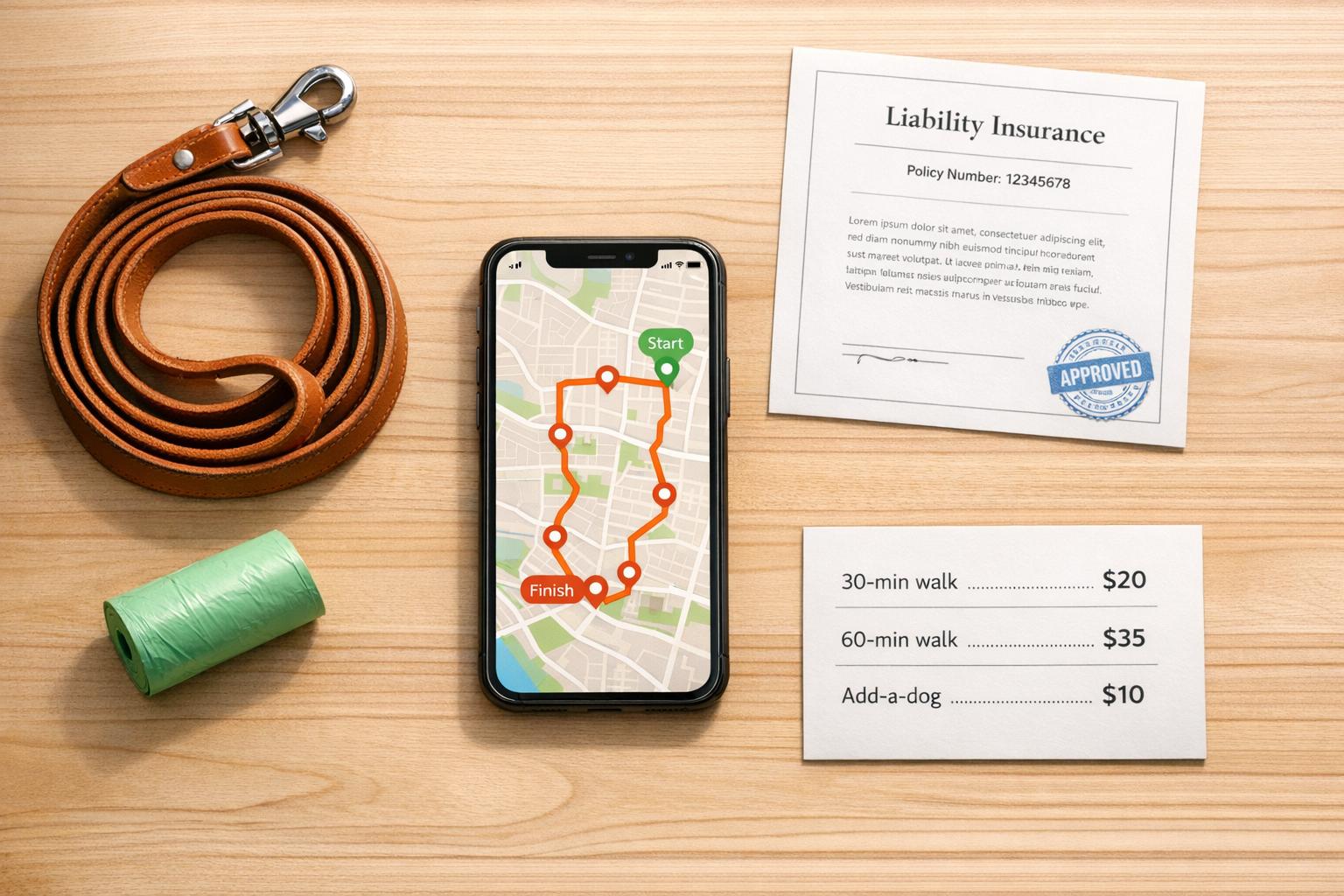
Starting a business in 2025 offers opportunities for every budget, from low-cost digital services to high-capital ventures. Whether you’re looking to start small with less than $1,000 or have the resources to invest millions, this guide breaks down 50 ideas into five cost tiers. Here’s a quick summary:
- Low-Cost Ideas (<$1,000): Virtual assistant services, freelance writing, social media management, and pet care.
- Moderate-Investment Ideas ($1,000–$10,000): Food trucks, home cleaning services, photography, and accounting.
- Mid-Range Ventures ($10,000–$50,000): Fitness studios, digital marketing agencies, and event planning.
- High-Capital Businesses ($50,000+): Manufacturing, franchise restaurants, and renewable energy companies.
- Cutting-Edge Tech ($100,000+): AI platforms, blockchain solutions, and space technology.
Each idea highlights the startup cost range, potential income, and key investment areas. Whether you want to start small or aim big, there’s an option for you in Australia’s thriving business landscape.
10 Simple Businesses You Can Start for Under $100 in Australia
1. Low-Cost Digital and Service-Based Ideas
These digital and service-focused opportunities are ideal for entrepreneurs working with tight budgets, often requiring less than $1,000 to get started. Many of these can even be run from the comfort of your home, making them great for those looking to keep overhead costs low.
Here are some specific ideas to help you launch your venture with minimal upfront investment.
1. Virtual Assistant Services
Offer remote administrative support, handling tasks like managing emails, scheduling appointments, and data entry. You can charge between $25–50 per hour, depending on the services you provide.
2. Social Media Management
Help small businesses grow their online presence by creating engaging content, managing posts, and interacting with followers on platforms like Instagram, Facebook, and LinkedIn.
3. Online Tutoring and Course Creation
Share your knowledge by teaching through live video calls or pre-recorded courses. Whether it’s academic subjects, professional skills, or hobbies, platforms make it easy to connect with students worldwide.
4. Freelance Writing and Content Creation
Write blog posts, website copy, newsletters, or marketing materials for businesses. With strong writing skills and some SEO knowledge, you can earn $30–100 per article, depending on the complexity.
5. Graphic Design Services
Use tools like Canva or Adobe Creative Suite to create logos, business cards, and social media graphics. Small businesses are always in need of visual content, making this a consistent income source for creative individuals.
6. Web Development and Design
Build simple websites for small businesses using platforms like WordPress or custom coding. Many entrepreneurs need websites but lack technical expertise, allowing you to charge $500–2,000 per project.
7. Digital Marketing Consulting
Help businesses improve their online visibility through strategies like SEO, email marketing, and digital advertising. Your expertise in driving online traffic and conversions can be highly valuable to companies looking to expand their reach.
8. Online Bookkeeping Services
Manage financial records, invoices, and accounting for small businesses using cloud-based software. Many business owners prefer outsourcing these tasks, giving you the opportunity to secure steady, monthly income.
9. Pet Services and Dog Walking
Offer pet sitting, dog walking, or grooming services in your local area. With pet ownership on the rise, busy pet owners are always looking for reliable care. This business requires minimal equipment and offers flexible hours with the potential for repeat customers.
10. Personal Training and Fitness Coaching
Provide fitness coaching through virtual sessions, personalized workout plans, or outdoor training. As more people focus on health and wellness, affordable alternatives to gym memberships and traditional training packages are in demand.
These business ideas allow you to dip your toes into entrepreneurship without significant financial risk. They’re perfect for testing your skills and validating your concepts while keeping costs low. Next, we’ll look at ventures that require a moderate level of investment to get started.
2. Moderate-Investment Retail and Professional Services
These businesses typically need an initial investment ranging from $1,000 to $10,000. They often involve physical products, certifications, or specialized tools, but they also offer the chance for higher earnings and more structured business models.
11. Mobile Food Truck or Cart
Starting a food truck or cart offers a way to enter the food industry with lower operating costs. Popular options in Australia include gourmet burgers, coffee, and healthy bowls. Initial expenses cover the purchase or lease of a vehicle, equipment, and necessary permits.
12. Home Cleaning Services
Provide cleaning services for homes and offices using professional-grade supplies and tools. With busy households and professionals willing to pay $25–$40 per hour for dependable cleaning, this business can generate consistent, recurring income.
13. Handyman and Home Repair Services
Offer general maintenance, minor repairs, and small-scale renovations for property owners. Skilled tradespeople are in steady demand to tackle various home repair and improvement needs.
14. Photography Services
Specialize in event, portrait, or commercial photography. Essential investments include high-quality camera gear, editing software, and promotional materials. Wedding photographers can earn $1,500–$5,000 per event, while portrait sessions typically bring in $200–$500.
15. Landscaping and Garden Design
Design and maintain outdoor spaces for both residential and commercial clients. Given Australia's favorable climate for gardening, property owners increasingly seek professional landscaping services to enhance their spaces.
16. Personal Chef and Meal Prep Services
Cater to individuals or families by preparing customized meals, especially for those with dietary restrictions or busy schedules. This service meets the rising demand for convenient and healthy meal options, with typical rates of $20–$35 per meal.
17. Mobile Car Detailing
Deliver professional car cleaning and detailing services directly to customers. With minimal overhead and the added convenience, you can charge between $80 and $200 per vehicle, depending on the service package.
18. Accounting and Tax Preparation Services
Assist individuals and small businesses with financial management and tax filing. This requires professional certification but offers reliable income, particularly during tax season, with fees ranging from $150 to $500 per return.
19. Real Estate Photography and Virtual Tours
Provide high-quality images and virtual tours for real estate agents and property managers. As the property market increasingly relies on digital marketing, these services are essential for showcasing listings effectively.
20. Boutique Retail Store
Open a boutique offering niche products like sustainable goods or locally crafted items. Success hinges on selecting a prime location and curating products that align with your target audience's preferences and values.
These moderate-investment ventures strike a balance between manageable startup costs and the potential for more substantial returns. They also offer better opportunities for scaling and long-term growth compared to smaller, service-based businesses. Up next, we’ll look at ventures that require slightly more capital but promise even greater growth opportunities.
3. Mid-Range Specialized Ventures
As you scale your investment, the opportunities - and potential returns - grow as well. Mid-range ventures typically require a moderate financial commitment and specialized skills, but they often deliver higher profit margins and a competitive edge. These businesses strike a balance between reasonable startup costs and the potential for strong growth.
21. Fitness Studio or Personal Training Facility
Consider opening a fitness studio that focuses on specific services like yoga, Pilates, or high-intensity interval training. Your initial investment will likely go toward equipment, lease deposits, and professional certifications. Pricing for individual and group sessions should align with local demand to attract and retain clients.
22. Digital Marketing Agency
Start a digital marketing agency offering services such as social media management, SEO, and advertising campaigns. Initial costs include professional software, team onboarding, and marketing materials. Agencies often secure recurring monthly retainers, providing a steady income stream.
23. Specialty Coffee Roastery
Invest in a coffee roastery to supply premium beans to cafes, restaurants, and individual customers. You'll need to budget for commercial roasting equipment, packaging, and storage. Revenue can come from both wholesale partnerships and direct retail sales.
24. Event Planning and Coordination Services
Offer event planning services for weddings, corporate functions, and private celebrations. Key to success is building relationships with vendors, venues, and suppliers. Your earnings will typically be a percentage of the event's total budget, making strong networking and organizational skills essential.
25. Childcare and Early Learning Center
Open a licensed daycare or early learning center to meet the needs of working families. Initial expenses often include facility setup, safety equipment, educational supplies, and staff training. Pricing for services should reflect the quality of care and the variety of programs offered.
26. Pet Grooming and Boarding Services
Launch a full-service pet care facility offering grooming, boarding, and daycare. You'll need to invest in specialized equipment, facility upgrades, and insurance. Rates for services generally depend on the quality and convenience of care provided.
27. Specialty Food Manufacturing
Produce artisanal food items like specialty sauces, baked goods, or health snacks for retail distribution. Setting up a commercial kitchen, securing packaging equipment, and meeting regulatory standards will be part of your startup costs. Many successful products enjoy high markups from production to retail.
28. Medical or Wellness Clinic
Start a healthcare or wellness practice, such as physiotherapy, chiropractic care, or alternative medicine. Licensing, medical equipment, and insurance are essential investments. Your consultation fees should reflect the expertise and specialized services you provide.
29. Auto Repair and Maintenance Shop
Operate an auto repair shop offering services like mechanical fixes, electrical diagnostics, and routine maintenance. Key investments include lifts, diagnostic tools, and specialized machinery. Revenue is generated through labor charges and markups on parts.
30. Commercial Cleaning and Janitorial Services
Provide cleaning services for office buildings, medical facilities, and retail spaces. Startup costs include commercial-grade cleaning equipment, service vehicles, and insurance. Many companies secure recurring contracts based on the size of the facility and the frequency of services.
These ventures offer a solid middle ground for entrepreneurs, combining moderate startup costs with the potential for stable revenue and scalability. They are well-suited for those ready to commit to a specialized business model with room for growth.
sbb-itb-08dd11e
4. High-Capital Businesses
High-capital businesses demand significant investment but come with the potential for scalable operations and dominant market positions. These ventures expand on mid-range opportunities, offering ambitious entrepreneurs the chance to establish large-scale enterprises. Below are several high-capital business ideas that rely on substantial funding to carve out a significant share of their respective markets.
31. Manufacturing and Production Facility
Starting a manufacturing business allows you to produce goods for domestic or export markets. Key investments include industrial equipment, facility setup, raw materials, and ensuring compliance with regulations. Manufacturing businesses can benefit from economies of scale, helping to secure long-term contracts with distributors and retailers.
32. Franchise Restaurant or Quick-Service Chain
Owning a franchise from well-known brands like McDonald's, Subway, or KFC can be a lucrative venture. However, upfront costs such as franchise fees, equipment, construction, and working capital can be substantial. The advantage? A proven business model, brand recognition, and ongoing support from the franchisor.
33. Hotel or Accommodation Business
Investing in a hotel, motel, or boutique lodging facility involves significant expenses, including property acquisition, renovations, furnishings, and management systems. Revenue streams can come from room bookings, hosting events, and offering services like dining or conference facilities.
34. Medical Equipment and Technology Company
Starting a business in medical devices, diagnostic tools, or healthcare technology requires substantial funding for R&D, regulatory approvals, manufacturing partnerships, and clinical testing. With aging populations and advancements in medical technology, this sector offers promising growth opportunities.
35. Construction and Development Company
A construction firm specializing in residential, commercial, or infrastructure projects involves upfront costs like bonding, insurance, and hiring skilled labor. These companies often secure large contracts with developers, government agencies, or private clients.
36. Transportation and Logistics Fleet
Building a business around a fleet of trucks, delivery vehicles, or specialized transport equipment requires investments in vehicles, maintenance facilities, insurance, and regulatory compliance. The surge in e-commerce has driven strong demand for last-mile delivery and freight services.
37. Renewable Energy Installation Company
Launching a business focused on solar, wind, or other renewable energy installations involves costs for equipment, specialized tools, technician training, and project financing. With rising government incentives and environmental regulations, renewable energy is becoming an increasingly attractive sector.
38. Data Center and Cloud Services Provider
Developing a data center to offer hosting, cloud computing, and IT infrastructure services requires significant investment in server hardware, cooling systems, backup power, security, and high-speed internet. The growing demand for digital services and data storage makes this a highly promising field.
39. Pharmaceutical or Biotechnology Startup
Starting a company in drug development, biotech research, or pharmaceutical manufacturing involves heavy investments in lab equipment, research facilities, regulatory compliance, and clinical trials. While the risks are high, a successful product can bring enormous financial returns.
40. Industrial Equipment Rental and Leasing
Creating a fleet of industrial equipment for rental to construction companies, manufacturers, and other businesses requires funding for heavy machinery, maintenance facilities, and transportation equipment. This model provides recurring revenue and caters to businesses that prefer leasing over purchasing expensive equipment.
These high-capital ventures require not only significant financial backing but also experienced management and well-thought-out strategies to thrive in competitive markets. With the right approach, they offer the potential to build lasting and impactful enterprises.
5. Cutting-Edge Technology and Innovation
For those ready to dive into the future, these advanced technologies offer a chance to be at the forefront of tomorrow's economy. These ventures aren't for the faint of heart - they require major capital investment and a vision for what's next. From artificial intelligence to clean energy, these ideas are reshaping industries and pushing boundaries. While the risks are high, the rewards can be transformative for entrepreneurs with the resources and expertise to lead.
41. Artificial Intelligence and Machine Learning Platform
Creating AI solutions for businesses involves designing complex algorithms, training models, and building scalable platforms. The initial investment covers high-performance computing systems, hiring specialized talent, and acquiring extensive datasets. Many large enterprises already pay top dollar for tailored AI solutions, making this a lucrative space for those who can deliver.
42. Quantum Computing Services
Quantum computing is still in its infancy, but it holds massive potential. Building a business in this field means collaborating with research institutions, investing in highly specialized hardware, and assembling teams of quantum physicists. Services might include consulting, algorithm development, or providing cloud-based quantum computing. Early adopters in this field are already carving out dominant positions.
43. Autonomous Vehicle Technology
Developing self-driving systems is no small feat - it involves cutting-edge sensors, machine learning algorithms, and rigorous testing. Entrepreneurs in this space need access to vehicle fleets, advanced computing infrastructure, and the ability to navigate strict regulatory requirements. While major players have poured billions into this field, niche markets like autonomous delivery or mining equipment still hold untapped potential.
44. Blockchain and Cryptocurrency Infrastructure
The blockchain sector continues to expand, offering opportunities in areas like payment processing, smart contracts, and digital asset management. Building a business here means focusing on secure protocols, user-friendly interfaces, and compliance with regulations. As decentralized finance grows, companies that can deliver reliable and scalable solutions stand to benefit.
45. Advanced Robotics Manufacturing
From industrial robots to medical and consumer applications, robotics is a field with endless possibilities. Success requires expertise in mechanical engineering, software development, and manufacturing. Investments go toward prototyping, testing facilities, and obtaining certifications. Companies like Boston Dynamics have shown how specialized robots can command premium prices in niche markets.
46. Virtual and Augmented Reality Solutions
Creating VR and AR experiences involves a mix of custom software, hardware, and engaging content. Entrepreneurs need to invest in development studios, motion capture tools, and partnerships with hardware providers. With companies like Meta betting big on immersive technologies, the potential for VR/AR spans industries from gaming to healthcare.
47. Internet of Things (IoT) Platform
IoT platforms connect devices, analyze data, and enable smarter systems. Building these ecosystems involves developing sensors, communication protocols, and robust analytics platforms. The capital needed includes hardware development, cloud infrastructure, and strong security measures. Opportunities abound in smart cities and industrial IoT applications for businesses that can deliver comprehensive solutions.
48. Biotechnology and Genetic Engineering
Biotech ventures require state-of-the-art labs, research equipment, and navigating complex regulatory processes. Investments often include building specialized facilities, conducting clinical trials, and developing intellectual property. Innovations like CRISPR have already attracted major venture capital, highlighting the potential for breakthroughs in this field.
49. Space Technology and Satellite Services
The space industry is booming, with opportunities ranging from satellite internet to Earth observation. Building a space tech business involves developing satellites, partnering with launch providers, and setting up ground station infrastructure. Companies like SpaceX have paved the way, but there’s room for startups to innovate in areas like space manufacturing and exploration.
50. Clean Technology and Carbon Capture
As climate goals become a priority, clean tech and carbon capture are gaining traction. These ventures demand investment in new materials, pilot projects, and regulatory compliance. With governments and corporations seeking sustainable solutions, businesses in this space are attracting significant funding and attention.
For entrepreneurs with the resources, these ventures represent the frontier of innovation. They require not just financial investment but also the ability to navigate regulatory challenges and assemble expert teams to tackle complex problems. The potential payoff? A chance to lead the way in shaping the future.
Conclusion
Starting a business in 2025 can be a straightforward process when you align your resources - be it capital, skills, or understanding of market demand. The 50 ideas we've covered highlight that opportunities are available for every budget, ranging from no-cost digital services to high-investment tech ventures. Whether you're eyeing a low-budget startup or a big-ticket project, the principles for success remain the same. Here’s a recap of key factors and trends shaping these opportunities.
First, ensure your budget aligns with your business idea. In Australia, over 60% of small businesses shut down within their first three years, often due to cash flow issues. For first-time entrepreneurs, low-investment businesses provide a safer starting point. On the other hand, high-capital ventures not only demand significant financial resources but also the patience to endure the journey to profitability.
Service-based businesses like accounting, bookkeeping, digital marketing, and consulting continue to rank among the most profitable options. These ventures allow you to tap into your existing expertise while keeping startup costs low - a practical approach, especially during uncertain economic periods.
Before diving in, market validation should be your priority. While the average small business in the U.S. employs between 1 and 19 people, even smaller-scale operations can struggle without proper research. Start with a Minimum Viable Product (MVP) to gauge demand and refine your model before making larger investments. Preselling or crowdfunding can also help confirm demand and generate early revenue.
Emerging trends present exciting opportunities for entrepreneurs who are ready to adapt. For instance, over 40% of Australian tech startups now integrate AI into their products and services. Meanwhile, the online education sector is projected to reach $457.8 billion by 2026, and the global pet industry is expected to grow from $259 billion today to $350 billion by 2027. These figures demonstrate how both new and traditional industries continue to expand.
Managing cash flow should be a top priority. Many entrepreneurs focus too much on revenue growth while overlooking profitability. Tools like free or low-cost accounting software and co-working spaces can help reduce overheads and keep finances in check.
The funding environment is also looking promising, especially for Australian entrepreneurs. Venture capital investment in Australian tech startups has surpassed $10 billion annually, and 74% of investors expect deal volumes to increase in 2025. Climate tech, in particular, is gaining momentum, with Australian investors increasing their commitments by $237 million in 2024 compared to 2022, even as global funding in the sector dipped by $60 billion.
To set yourself up for success, research local demographics, competition, and operational costs. Build a financial model that reflects realistic sales and expenses. If you have specialized knowledge, consider starting a consultancy - it requires minimal startup capital while allowing you to charge premium rates.
Ultimately, entrepreneurship demands a mix of ambition and practicality. Whether you're starting a $500 social media consultancy or a $5 million biotech venture, success comes down to solving real problems for real people. While the ideas in this guide provide a solid foundation, your execution will make all the difference. Use your strengths to address customer needs effectively.
The time to act is now - seize these opportunities while they’re within reach.
FAQs
What should I consider when selecting a small business idea based on startup costs?
When picking a small business idea, it’s crucial to weigh a few factors to make sure it suits both your budget and your personal goals. Start by digging into some market research. This will help you gauge demand, understand your competition, and evaluate how profitable your idea could be.
Next, break down startup costs - things like equipment, permits, marketing, and other must-haves. Knowing these numbers upfront can save you from surprises later. Lastly, take stock of what you already have: skills, tools, or even useful connections. This will give you a clear picture of what you’ll need to invest in to get started.
By taking the time to analyze these aspects, you’ll be in a better position to choose a business idea that not only matches your financial reality but also has room to grow.
How can I check if there’s demand for my business idea before making a big investment?
Before diving headfirst into your idea, it’s smart to make sure there’s an actual market for it. Start by digging into your target audience. What are their needs, preferences, and frustrations? Understanding these details will give you a clearer picture of how your idea might fit into their lives. At the same time, take a good look at your competitors. See what they’re doing to meet similar demands and pinpoint areas where they might be falling short - those gaps could be your opportunity.
Testing your idea on a smaller scale can also be incredibly helpful. Try running surveys, hosting focus groups, or creating a basic prototype to collect feedback. Even simple online tools like social media polls or landing pages can give you a sense of whether people are interested. These methods let you validate your idea without pouring in a ton of money or effort upfront. Taking these steps early on can save you time and resources while helping you move forward with confidence.
What are the best ways to manage cash flow during the early stages of starting a small business?
Managing your cash flow wisely is essential when starting a business. Here are some practical strategies to help keep your finances in check:
- Know your expenses: Create a detailed breakdown of all your operational costs. Focus on essential spending first, so you can manage your budget effectively without unnecessary expenses creeping in.
- Keep a close eye on cash flow: Regularly track your income and expenses. This helps ensure you have enough funds for daily operations and highlights areas where you could cut back.
- Leverage affordable tools: Use free or budget-friendly software for tasks like bookkeeping, payroll, and financial management. These tools can save you time and money.
- Consider freelancers for specific tasks: Instead of hiring full-time staff, outsourcing to freelancers can be a cost-effective way to get work done without the long-term payroll commitment.
By staying organized and mindful of your spending, you'll be better equipped to maintain steady cash flow and build a solid foundation for your business.
Related Blog Posts
Get the newest tips and tricks of starting your business!


